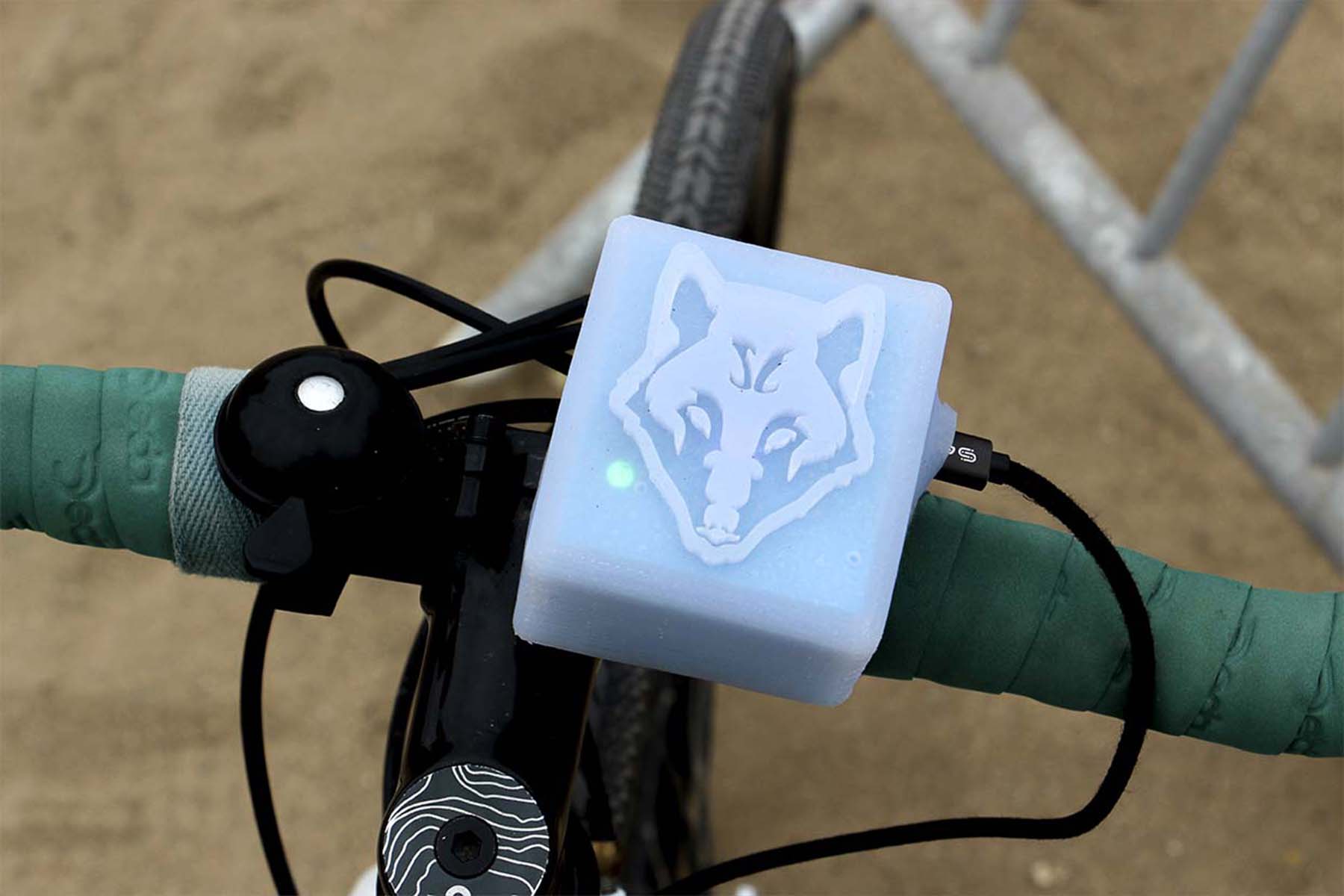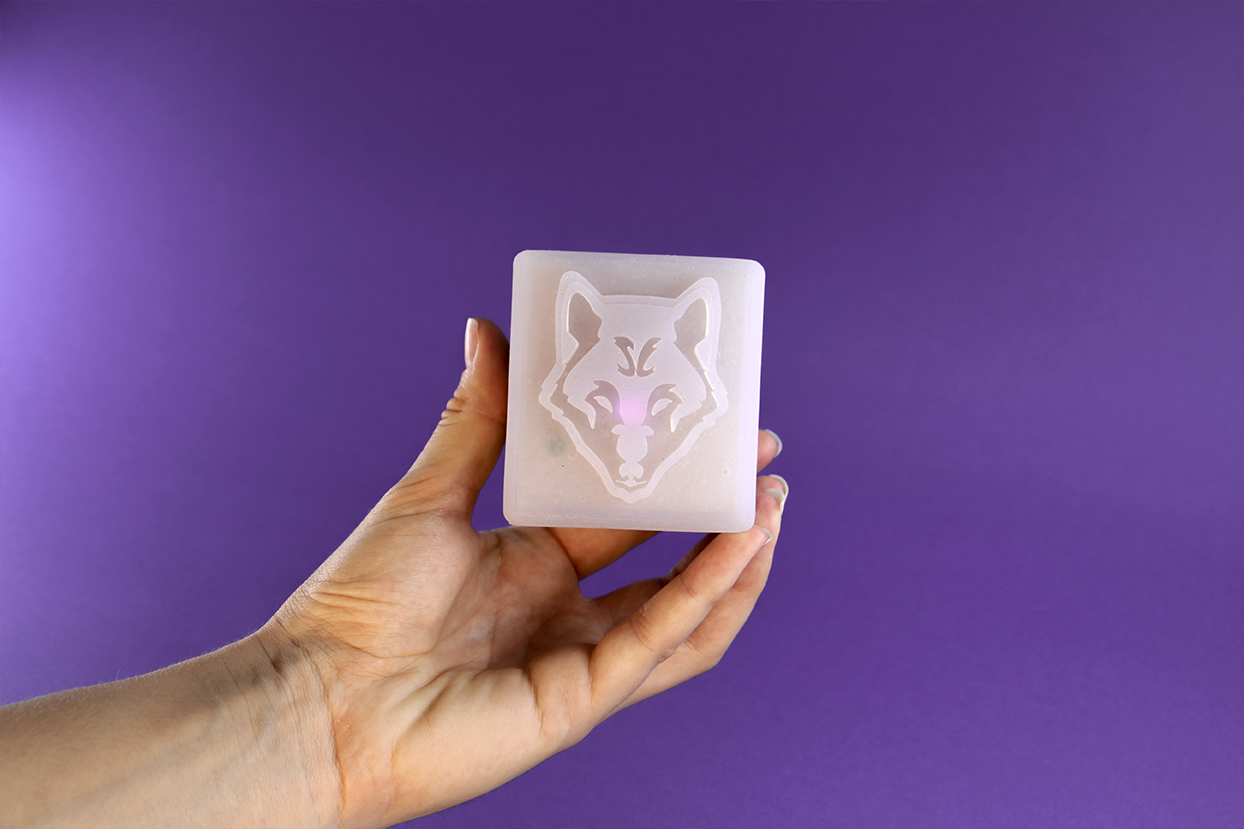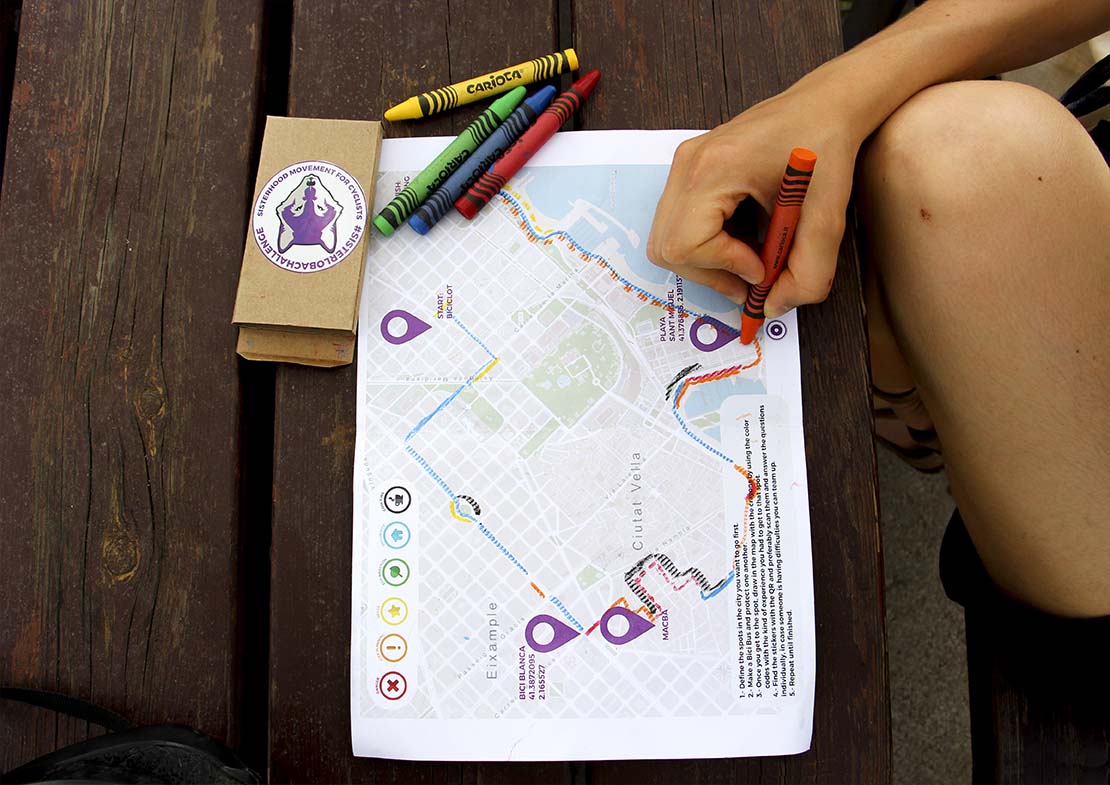Sister Loba

Useful information
- Team members
- Francisco Flores
- Country
- Spain
- Keywords
- mobility inclusion STEM for women cycling bottom-up communities regeneration smart data activism
Short Description
Empower cyclists women with tools to map their routes in the city according to their feelings.
Detailed Description
Big data is not the ultimate solution for dealing with urban mobility, especially when considering social dimensions. How can we build human centered big data based on the women’s cyclist experiences and needs? How could this ‘humanized’ smart data contribute to mobility planning and policy approaches that may effectively promote cycling and enable women's security and wellbeing?
After a co-creation process with women cyclists of our communities in Barcelona (Spain), Santa Cruz de la Sierra (Bolivia) and León (México) we designed a digital artifact and an analogue toolkit to map and rate the cycling experience in the city in terms of safety and quality.
The open source digital device will send the GPS points (latitude and longitude) to a private Google Sheets document using the IFTTT protocol programmed in the code and when data is collected it is possible to link these points to Google Maps and used as collective evidence for inclusive policy making and to help other cyclists.
Project Details
- Does your design take social and cultural challenges and human wellbeing into consideration?
Cycling is an affordable alternative to promote fair mobility, security and wellbeing.
Listening to women sharing their cycling experience in the cities and involving them in the policy making process is imperative if we want to build fair and sustainable policies.
Collective data provides unprecedented opportunities for understanding and planning urban mobility from a (bottom-up) co-designed approach.
- Does your design support sustainable production, embodying circular or regenerative design practices?
Cycling is considered a sustainable and inclusive mobility practice, it can reduce the CO2 emissions produced in the city and help the economy.
The objective is to enhance urban regeneration strategically, by providing information about real cyclists' needs and feelings starting with the vulnerable communities.
- Does your design use principles of distribution and open source?
The fabrication process and design follows the paradigm shift from PITO (Product In Trash Out) to DIDO (Data In Data Out) by using digital fabrication such as 3d printing and PCB milling for local production and all the process, files and code is documented for free global access under Creative Commons Attribution, NonComercial and ShareAlike 4.0 international (CC BY-NC-SA) license.
- Does your design promote awareness of responsible design and consumption?
We promote cycling by providing open source and “fabbable” digital and analogue tools, as response to #WomenSafety and the climate emergency.
Images


